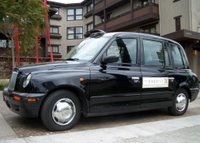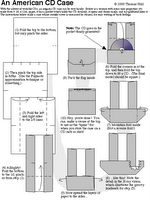Paul's note: I am pleased to weclome back Bill to (at least) one cool thing with his third contribution. Previously Bill has written about talbot's toyland and the rosicrucian egyptian museum, and today he shares his encyclopedic knowledge of films with a discussion of some of his favorites.Paul has been asking me to do a post on the top old WWII movies for some time. To narrow the list, I decided the movie had to be made before 1980 and had to portray either a true story or fictional characters within actual battles (which means I'll have to put
The Guns of Navarone in another list). As I considered some of my favorites, I realized that many of them made a lasting impression on me. Here's a list of some of the best old WWII movies and the lessons I learned from them:
Sands of Iwo Jima (1949)

Good thing I didn't see this movie right before either of my sons were born, or I would have named at least one of them Stryker, after the marine sergeant played by John Wayne. Stryker is the ultimate leader of men: tough as nails but with a heart of gold. In order to teach one recruit proper technique for bayoneting, Stryker smacks him in the face with the butt of his rifle, but then dances with him later on. How's that for tough love! Even the whiner in his platoon finally appreciates Stryker after he gets killed by a sniper. The lesson? You can't be too sensitive when your coach/boss/wife yells at you. It's probably for your own good.
To Hell and Back (1955)

Unlike the fictional Stryker, Audie Murphy was a true hero. It's hard to beat a real Medal of Honor winner playing himself. I haven't seen this movie in a couple decades, but its lesson is still indelibly etched in my mind. When your good buddy gets killed right next to you, the best thing you can do is go berserk, charge the hill and take out a few dozen of the enemy. Not only do you get to avenge your friend many times over, but you may get a medal to boot! Fortunately for my close friends, I haven't had to apply this lesson yet.
First To Fight (1967)

The sole survivor of a night attack on Guadalcanal, marine Jack Connell single-handedly kills the last 50 or so Japanese. He is sent home as a hero and promoted to Lieutenant. Things start to go bad when he meets a pretty girl and gets married. Feeling guilty, he volunteers to go back to the Pacific. But as he leads his men onto the beach, Jack suddenly thinks of his wife and freezes in fear. His sergeant finally has to kick Jack in the butt to snap him out of it. Jack redeems himself by blowing up one pillbox with a bazooka and repelling down a cliff to toss explosives in another. The lesson? Getting married turns even the toughest guy into a big softie. Although I saw this one coming, I couldn't prevent the same thing from happening to me.
Patton (1970)

George C. Scott is phenomenal as Old Blood & Guts. Even as a little kid, I thought it was unfair that Patton got in trouble for smacking that loser in the hospital. The lesson? No matter how badly some punk deserves it, it's just not worth it to hit him. It will only hurt you and your team. Good one to keep in mind for both sports and work situations.
A Bridge Too Far (1977)

So how does Patton hurt his team by hitting that guy? HQ starts letting Montgomery call more of the shots. Instead of a straightforward run up the middle, Monty decides to get fancy with Operation Market Garden. In this true story, multiple paratroop drops are supposed to take and hold key bridges in the Netherlands long enough for the tanks to make their way up. Much is made in the movie of Panzers on aerial photos being ignored, but the real problem is that Monty's plan depends on everything going perfectly. When unexpected problems arise (e.g., the banks of the roads are too soggy for tanks to get around obstacles, supply drop zones get over-run, and radios don't work) even this star-studded cast can't complete their mission. The lesson? Keep It Simple, Stupid.
The Great Escape (1963)

A true story better than anything you could make up, this movie honors the perseverance and bravery of allied flyers in a Luftwaffe prison camp. The movie is faithful to the real events, except for the use of composite characters played by a stellar cast. Steve McQueen, in particular, has some great moments throwing his baseball against the "cooler" wall and evading the Germans on a motorcycle. By digging 3 tunnels (Tom, Dick and Harry) and finding ingenious ways to hide their efforts, the prisoners manage to get 76 men out before being discovered. A few escape for good, but most are ultimately caught. However, they succeed in their primary goal of diverting German forces in order to track them down. (Unfortunately, they are so successful in distracting the Germans that the Gestapo executes 50 of them.) The lesson? If you're going to get in trouble anyway, you might as well make the most of it.
The Battle Of Britain (1969)

Another all star cast portrays pilots during the battle of Britain in 1940, with exceptional scenes of aerial combat. A great touch is that the Germans actually speak German at all times. Just as the British are about to break under the relentless pressure of the numerically superior Luftwaffe, Hitler gets angry and orders the Luftwaffe to target London instead of the RAF's airfields and radar installations. This gives the RAF the breathing room they need to recover. When the Luftwaffe, in frustration, switches to daylight bombing raids, the RAF shoot down enough planes to make the Germans finally give up and turn their attention to Russia. To quote Winston Churchill, the lesson here is "Never give in. Never give in. Never, never, never, never..."
 When I travel to the Southland, I prefer to stay in West LA. It has great restaurants, and it is convenient to the places I am most likely to visit.
When I travel to the Southland, I prefer to stay in West LA. It has great restaurants, and it is convenient to the places I am most likely to visit. Rooms at the Ambrose start in the high $100s and have unexpected amenities for that price point: Frette towels, Aveda products and free underground parking. They also include complimentary WiFi access and a delicious continental breakfast. We enjoyed the orange and grapefruit juices, the croissants and pastries, and the yogurt and fresh fruit.
Rooms at the Ambrose start in the high $100s and have unexpected amenities for that price point: Frette towels, Aveda products and free underground parking. They also include complimentary WiFi access and a delicious continental breakfast. We enjoyed the orange and grapefruit juices, the croissants and pastries, and the yogurt and fresh fruit.


































